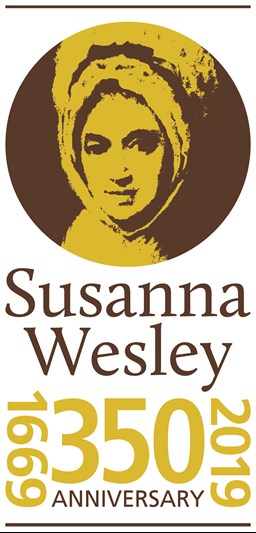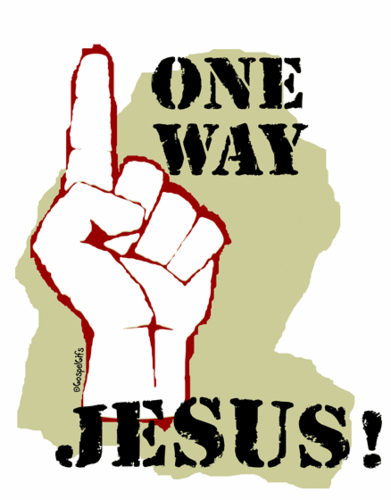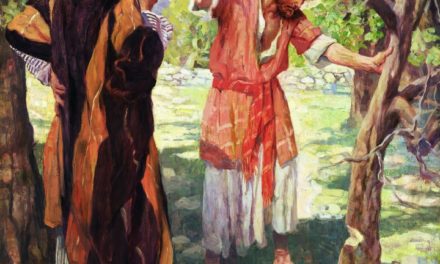The part played by Mary in the Gospel reading for today on John’s account of the Wedding of Cana helps us to reflect upon the esteem in which we should hold mothers today. The 350 anniversary of the birth of ‘Mother Wesley’ – Susanna Wesley is very prophetic and timely in an age when ‘Christian families are struggling in a culture hostile to Christian values, and increasingly find themselves searching for answers and strategies to be more effective.’ The marriage and parenting legacy of Susanna Wesley that changed the world provides ‘empowering insight for: surviving the culture wars as a family, educating children—the Bible offers guidance, practical tips for raising spiritually-healthy children, solutions to the root cause of dysfunctional families, discovering biblical authority as a parent, and discipline—necessary and lovingly administered.’ The reflection is that mothers are the nurturing force just as Mary and Susanna surrounded the earthly ministry of their children.
The book, Raising Godly Children in an Ungodly World: Living a Lasting Legacy by Ken Ham and Steve Ham finds a visible narrative in the marriage and parenting legacy of Susanna Wesley, “the mother of Methodism.” Susanna Wesley despite her turbulent marital and parenting experience raised children with strong foundation of biblical faith and also created an incredible faith, marriage, and parenting legacy for the world. As it was in the time of Susanna Wesley, Ken and Steve explained that parents today ‘also face a disturbing trend of young people leaving home and leaving the Church and want to insure their children have a strong foundation of biblical faith and understanding.’
Susanna Annesley, daughter of a prominent, highly educated minister in cosmopolitan London, ‘born the twenty-fifth of twenty-five children in 1669 … understood the dynamics of large families.’ She was well-read and well-rounded intellectually despite that fact that she had little education but she grew ‘up in an academic household with so many older siblings.’ At age 19, she met Samuel Wesley, an Anglican minster and they got married in 1688. Susanna and Wesley had 19 children ‘but nine — including two sets of twins — died in infancy. Another was accidentally smothered in the night by a nurse as Susanna recovered from labour and delivery.’ Through hardship, loss, and suffering, Susanna based on her strong faith exercised virtues of commitment, support to her husband, organisation, and prayer. To Susanna,’the child that never learns to obey his parents in the home will not obey God or man out of the home.’ To Susanna, parenting and marriage are sacred trust from God. Children thrives on love just as the home to Susanna is the primary training and spirituality environment. To Susanna, home is where parents model being a Christian and, in turn, present to their children the knowledge and practical opportunities to develop that in their own lives.
Susanna’s husband, Samuel, an intellectual academic, ‘did not succeed in his thirty-nine-year assignment as rector of the church at Epworth’ but she remained faithful to him even when the rural villagers did not care for them. In the midst of a highly divisive political matter that affected the entire nation in that time, Susanna was an example and a model of Proverb 31 woman even when she and the children were harassed and insulted. Susanna was not just a good manager of home, farm, money, and ‘huge task of homeschooling all of the children,’ in the face of her husband’s incapability and debtors’ prison. Scholars agreed that ‘Susanna’s household organisational skills are the stuff of legend. She knew from personal experience that quality one-on-one time with a parent is hard to come by in a family with many children, yet powerfully important. So she set a rotating schedule through which each of her children spent an hour with her alone before bedtime on a designated night each week.’ Susanna’s sustaining and renewing grace was her serious relationship to God as she did her duties as a wife and mother.
Susanna lived under the vow that ‘she would never spend more time in leisure entertainment than she did in prayer and Bible study.’ Susanna, though overflowing with children did her best as a wife and mother to present herself to God as one approved, a work-woman who does not need to be ashamed and who correctly handles the word of truth (2 Tim. 2:15). Susanna, through her holy discipline and equipping with a thorough and profound knowledge of the Bible ‘interceded for her husband and children …’ On discipline, Susanna’s 16 rules in her home focused on how a child can ‘grow into a self-disciplined adult, he/she must first be a parent-disciplined child.’ Susanna believe that, the stubborn flesh was the hardest battle for Christians to fight, and Godly parents would do well to equip their children to overcome it early.
Susanna’s faith, marriage and parenting legacy include her home based informal family Bible study that later moved to a larger venue with as many as two hundred people in attendance. Before she passed away in 1742 and through all adversity, Susanna remained faithful to her husband and dedicated her life to instilling a sense of Christian destiny into each of her children, especially John and Charles, the world-renowned leaders of the Methodist Christian movement. Susanna rightly provides the focus and legacy of early Methodism by calling people, firstly through her family, to re-centre their lives on spiritual discipline.











Recent Comments